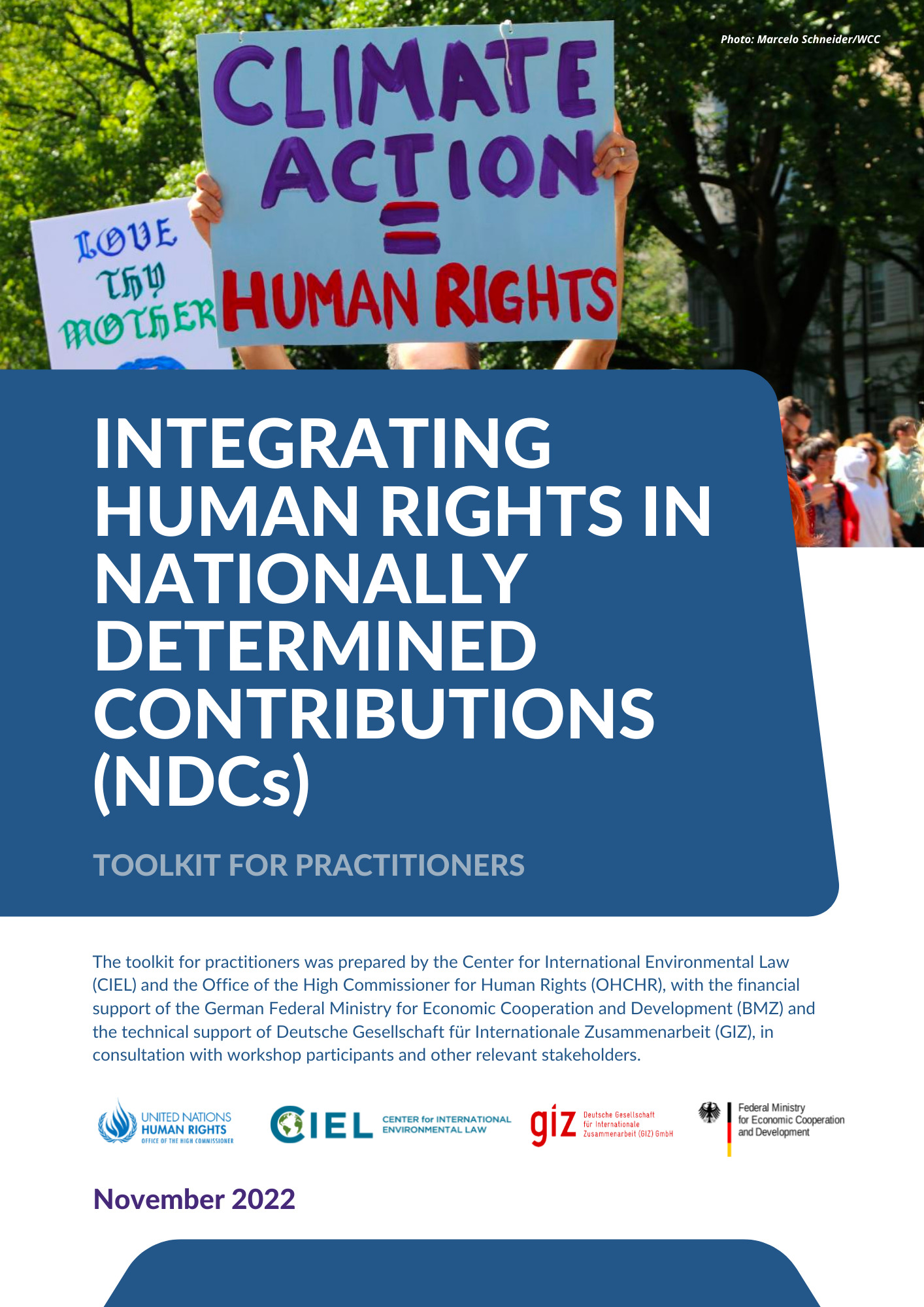
Integrating Human Rights in Nationally Determined Contributions (NDCs): A Toolkit for Practitioners is a practical guide to aid States, policymakers, development agencies, civil society, and other relevant stakeholders in integrating human rights in their NDCs.
Climate change threatens ecosystems, wildlife, and human rights. Many effects can already be seen today, including rising sea levels, glacial retreat, changes in precipitation patterns, and extreme weather events, such as heat waves, droughts, and heavy rain. According to the Intergovernmental Panel on Climate Change (IPCC), “limiting global warming to 1.5°C compared with 2°C would reduce challenging impacts on ecosystems, human health and well-being.”
The Paris Climate Agreement at the 21st Conference of the Parties (COP) to the UN Framework Convention on Climate Change (UNFCCC) in 2015 was a turning point in international climate policy. In order to limit warming and corresponding human rights impacts, Parties to the Paris Agreement are required to develop and implement NDCs to reduce greenhouse gas (GHG) emissions in order to meet the global warming target. NDCs are at the heart of the Paris Agreement and embody “efforts by each country to reduce national emissions and adapt to the impacts of climate change.”
As the NDC process is a central mechanism for the Parties to the Paris Agreement to define their climate change mitigation and adaptation measures, its preparation, content, and implementation present an essential opportunity to address the human rights impacts of climate change and integrate human rights in climate action. To effectively promote compliance with State human rights obligations, the linkages between human rights and climate change should be addressed explicitly and intentionally in all policy stages related to NDCs.
The sections of Integrating Human Rights in Nationally Determined Contributions: A Toolkit for Practitioners contain recommendations, checklists of key human rights considerations, relevant international instruments, and illustrative examples of State practices. The guiding questions can be applied and used as practical tools to inform the development and updating of NDCs in accordance with relevant international instruments.
Its sections focus on:
- Human rights considerations related to ambition
- Participatory planning and implementation
- Integrating human rights
- Mainstreaming gender
- Integrating Indigenous Peoples’ rights and traditional knowledge
- Land tenure and community-based natural resource management
- Aligning the NDC with the imperative of a just transition
A final annex provides a list of resources regarding the integration of human rights considerations in climate action and in NDCs more specifically.
Read the toolkit.
